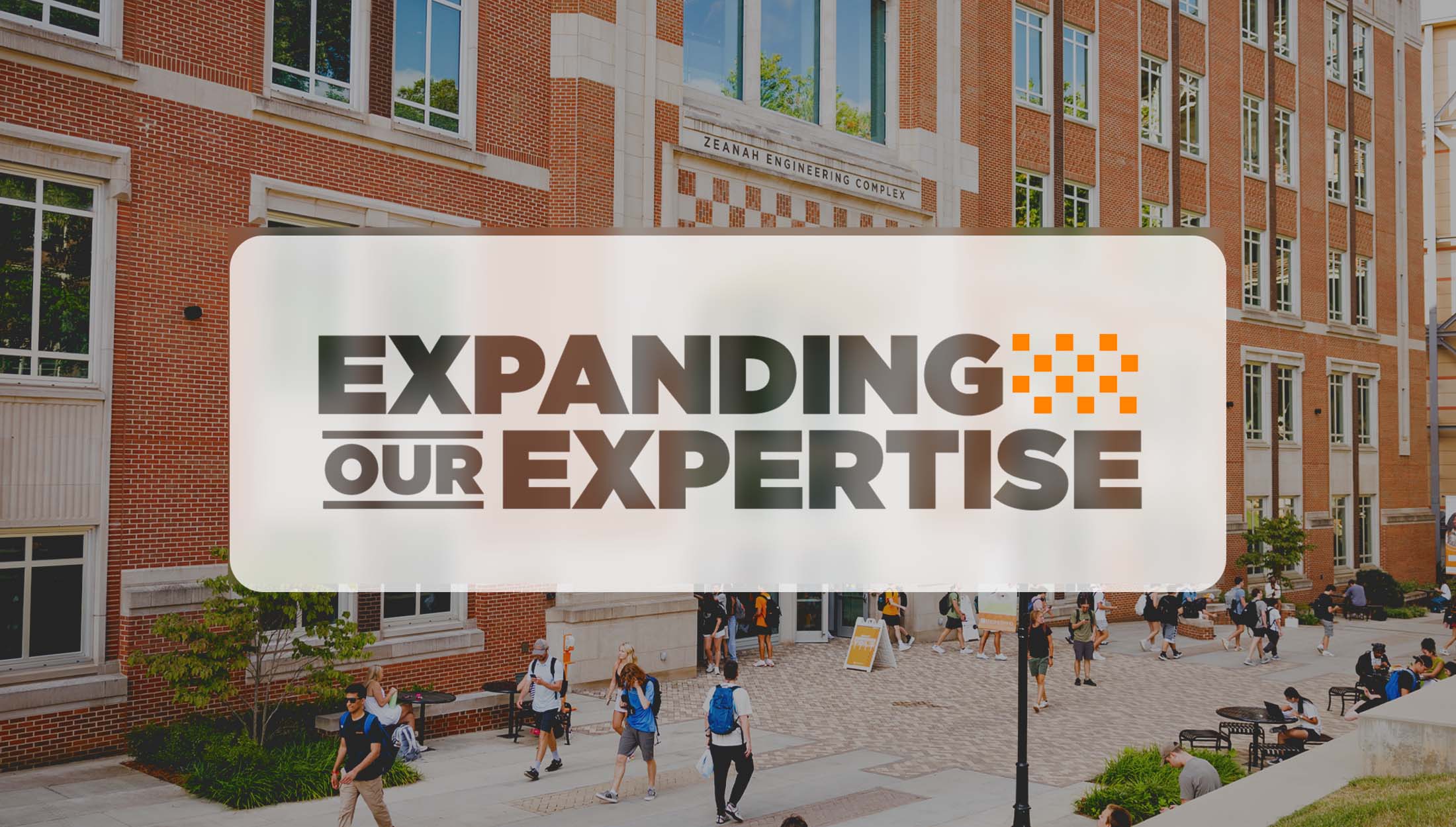The Tickle College of Engineering welcomed 20 new faculty members to the college starting in the fall 2025 semester, bringing with them a range of expertise in various areas. Use the drop downs below to learn more about our new faculty and visit their faculty profile pages.
Mohamed Akrout | Electrical Engineering and Computer Science
Akrout received his PhD in electrical and computer engineering from University of Manitoba and worked as research scholar at the University of California San Diego (UCSD) and Technical University of Munich (TUM). His current research interests include signal processing for inverse problems, wireless communication, physically consistent antenna design, and machine learning for healthcare applications. He was the recipient of the doctoral scholarship and the postdoctoral fellowship from the Natural Sciences and Engineering Research Council of Canada (NSERC) in 2022 and 2024, respectively. His work has been published in a variety of top venues in machine learning and signal processing and in communications.
“I am excited to join UT as a new faculty member. My research in energy-efficient communication systems aligns well with the department’s strong expertise in power and electronics, and I look forward to pursuing interdisciplinary collaborations in this area. With the EECS department experiencing remarkable growth, I am looking forward to contributing to its continued success. I am also greatly enjoying the natural beauty around Knoxville.” – Akrout
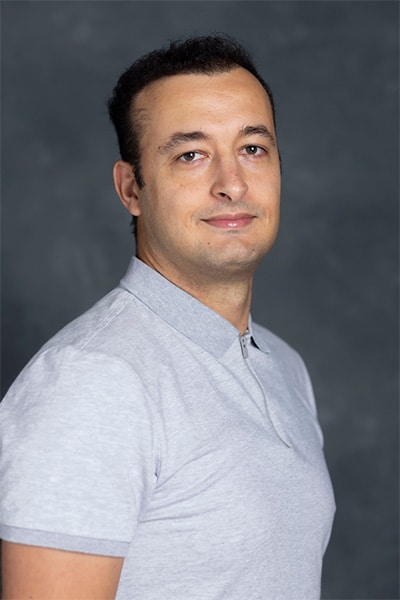
Mohsen Asle Zaeem | Materials Science and Engineering
Asle Zaeem joins the university as the Department Head and Cook Eversole Endowed Professor in the Department of Materials Science and Engineering. He joins UT from the Colorado School of Mines where he served as an Associate Professor of Materials Science and Engineering.
Asle Zaeem’s research lies at the intersection of materials science, solid mechanics, and computational physics. His group develops multiscale computational models and large-scale simulation frameworks to study process–microstructure–property relationships in structural and functional materials. His recent work focuses on integrating artificial intelligence (AI) and machine learning (ML) with physics-based models to accelerate the discovery and design of advanced materials. He has published more than 130 peer-reviewed journal articles, and his research has received over 6,400 citations with an h-index of 45.
“The Department of Materials Science and Engineering at UT, with its exceptional faculty and outstanding research and teaching facilities, is poised to reach even greater heights in educating the next generation of highly skilled materials engineers and scientists and in establishing itself as a global leader in materials research.”
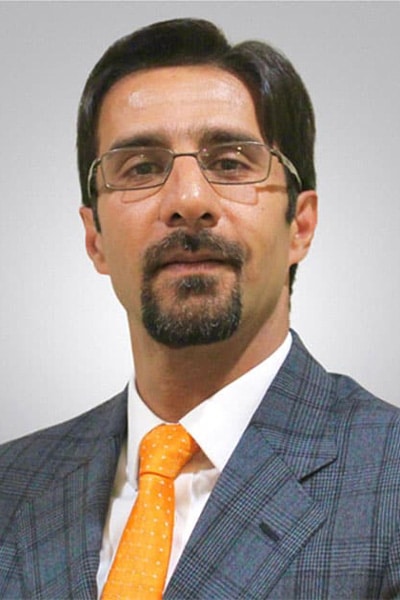
Pingen Chen | Mechanical and Aerospace Engineering
Chen received his PhD in mechanical engineering from Ohio State University. He joins the University of Tennessee after serving nine years at Tennessee Technological University and two years at Cummins Inc. Chen’s research focuses on design, control, and optimization of broad automotive and transportation systems, including automotive engines, hybrid and electric vehicles, automated and connected vehicles, battery recycling and reuse, energy-efficient mobility and building systems, and alternative and renewable fuels. Chen has received several prestigious research awards, such as SAE Ralph R. Teetor Educational Award in 2021
“I am very excited to join the Department of Mechanical and Aerospace Engineering at UT as one of the cluster hires for the Institute for Future Mobility. With this strategic initiative, the university has positioned itself as one of the leading research institutions in the nation for research and education in automotive and transportation areas. I look forward to working closely with the faculty and students at UT to realize its potential.”
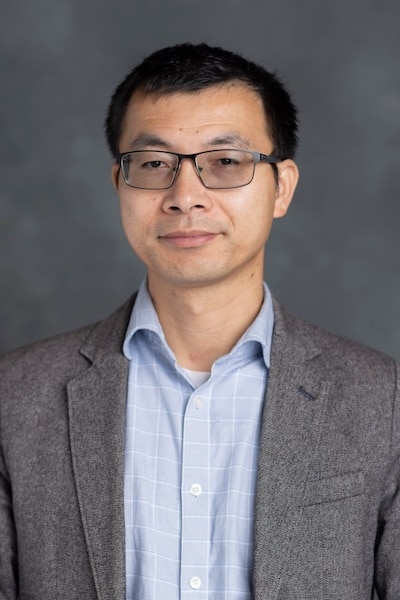
Esteban Cisneros-Garibay | Mechanical and Aerospace Engineering
Cisneros-Garibay conducts research on compressible flows and combustion in high-speed propulsion. His methods are computational, integrating large scale simulation, reduced modeling, and uncertainty quantification. Cisneros-Garibay earned his PhD from the University of Illinois and was later awarded a Presidential postdoctoral fellowship at Princeton University.
“I am proud to come to an institution that prioritizes growth in a holistic sense. It is also exciting to see students full of potential. I am looking forward to working with them.”
Soham Das | Industrial and Systems Engineering
Das’s appointment at UT is part of the Science-Informed Artificial Intelligence cluster at Tennessee, a strategic initiative to foster interdisciplinary collaboration at the intersection of AI and the domain sciences. Das received his PhD in operations research from Texas A&M University in 2025. Das’s research sits at the interface of game theory, optimization, and reinforcement learning, with a focus on multiagent decision making in complex and uncertain environments. His work addresses fundamental challenges in designing safe and efficient learning algorithms for agents operating in dynamic systems, such as energy grids, autonomous transportation networks, and social or economic systems.
“It’s a privilege and an honor to be a member of the faculty at the University of Tennessee. I plan to build new bridges across academic units and advance the frontiers of science and technology through research, teaching, and collaboration.”
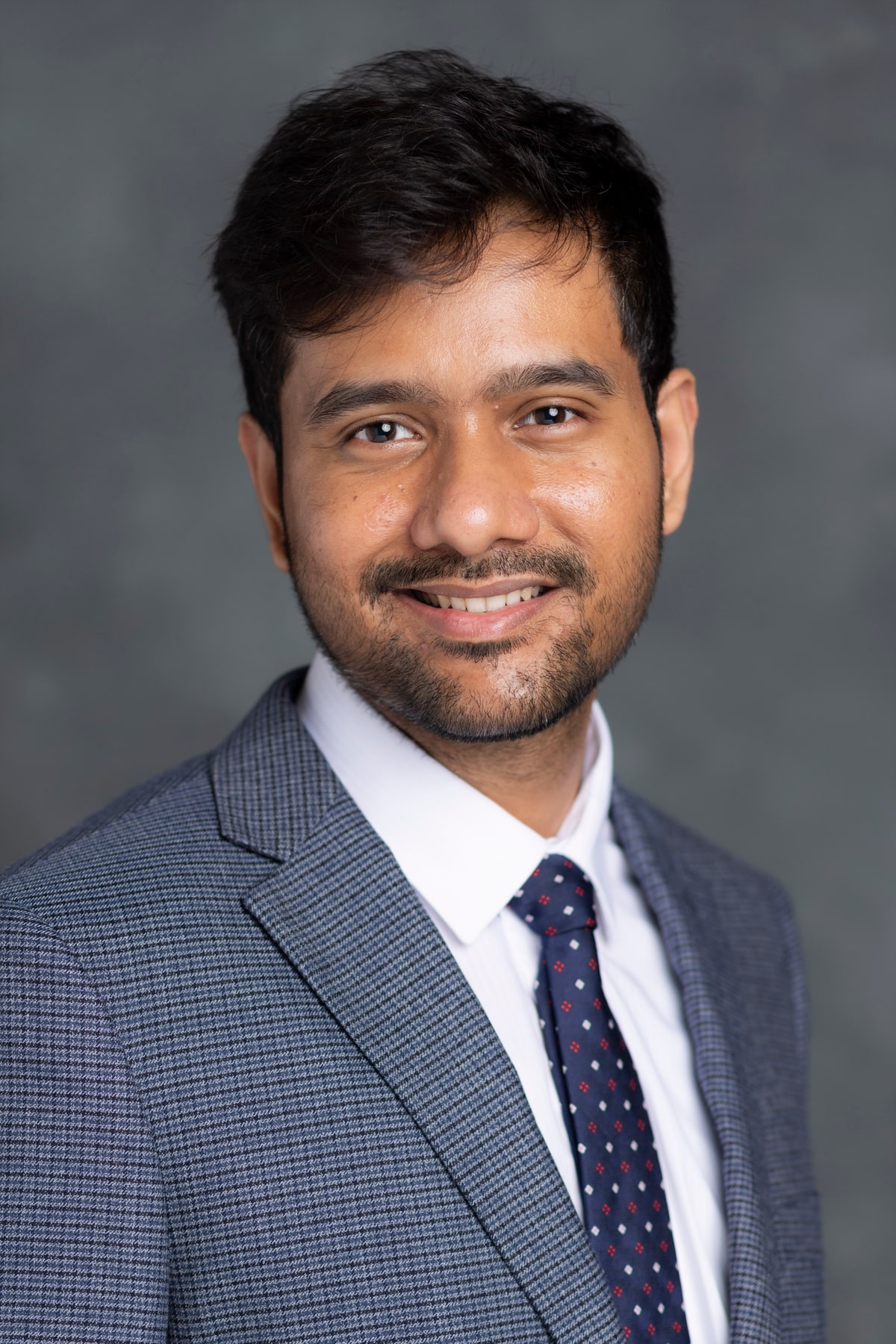
Dongsheng Ding | Electrical Engineering and Computer Science
Ding joins UT after completing a postdoctoral position at the University of Pennsylvania. He previously received his PhD in electrical engineering from the University of Southern California. His research focuses on application of principles and tools in optimization and control to the study of machine decision-making. Ding develops principled methodologies that enable reinforcement learning and generative modeling to operate under specific requirements, such as safety and fairness.
“Advancing AI means building systems that are not only capable, but also aware of the requirements that should guide their decisions.” – Ding
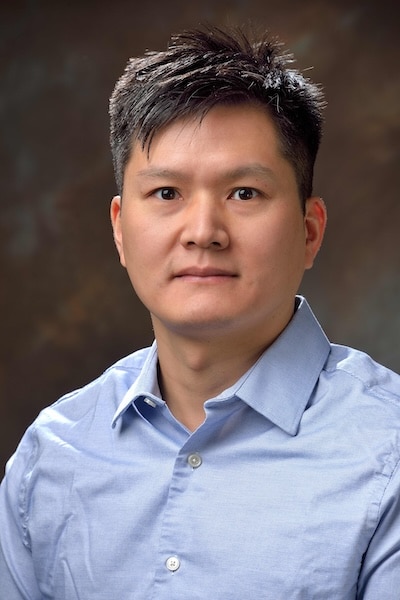
Nasir Eisty | Electrical Engineering and Computer Science
Eisty joins UT from Boise State University, where he was an assistant professor in the Computer Science Department. He earned his PhD and master’s degrees in computer science from the University of Alabama. His research focuses on empirical software engineering, software quality assurance, including areas such as software testing, peer code review, and software metrics, scientific/research software engineering, and the application of AI in software engineering. Eisty has professional experience working with prestigious institutions such as Los Alamos National Laboratory and the National Center for Supercomputing Applications. Additionally, he has contributed to the academic community by presenting tutorials and organizing workshops at various conferences. Notably, Eisty was honored with the Better Scientific Software 2020 Fellow Award by the US Department of Energy.
“I’m excited to join the University of Tennessee for its strong academic legacy, the collaboration with Oak Ridge National Laboratory, and my deep appreciation for the stunning Smoky Mountain region. I’m thrilled by the possibilities ahead to conduct impactful research, spark new collaborations, and engage fully in a dynamic and welcoming academic community.” – Eisty
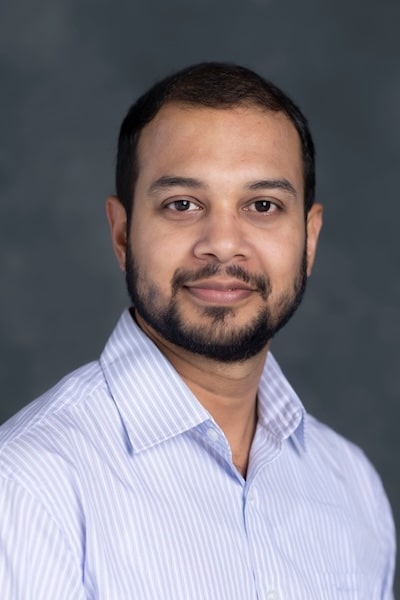
Hao Huang | Electrical Engineering and Computer Science
Huang obtained his PhD in electrical and computer engineering from Texas A&M University in 2022. Prior to joining UT, he worked as a postdoctoral researcher at Princeton University. He holds a master’s degree with honors in electrical engineering from the University of Southern California and a bachelor’s degree in engineering from Harbin Institute of Technology, China. Huang’s research interests include power system resilience, cyber-physical security, and the application of artificial intelligence in smart grids, with the aim of realizing resilient, secure, and intelligent modern power and energy systems. He is a recipient of the Thomas Powell Fellowship, and his work has been recognized with the 2023 Wiley Top Cited Article and Wiley Top Downloaded Article.
“Theoretical research combined with real-world implementations will accelerate the transformation of technology, and I believe that UT offers tremendous opportunities to make it happen.” – Huang
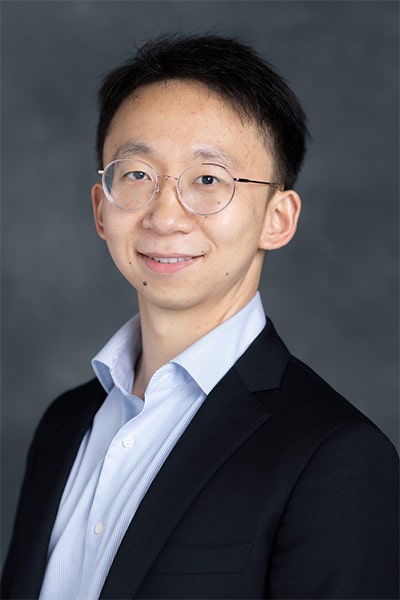
Alex Ivanov | Nuclear Engineering
After completing his bachelor’s and master’s degrees in chemistry at RUDN University in Moscow, Russia, Ivanov earned his doctorate at Utah State University in the Department of Chemistry and Biochemistry.
Ivanov’s research interests balance experimental work and theory, nuclear medicine and energy production. He has been serving as a principal investigator on the Molten Salt in Extreme Environments (MSEE) center, one of the United States Department of Energy (DOE) Energy Frontier Research Centers, which is devoted to understanding how the atomic-scale properties of molten salts translate to the design of Generation IV nuclear reactors.
“I prefer to work in environments where young minds can come and solve problems. That is important to me because I’m not only translating my knowledge to students, but they are sort of teaching me as well. I like seeing how students, with their fresh minds, come up with new ideas that contribute to the future of our society.”
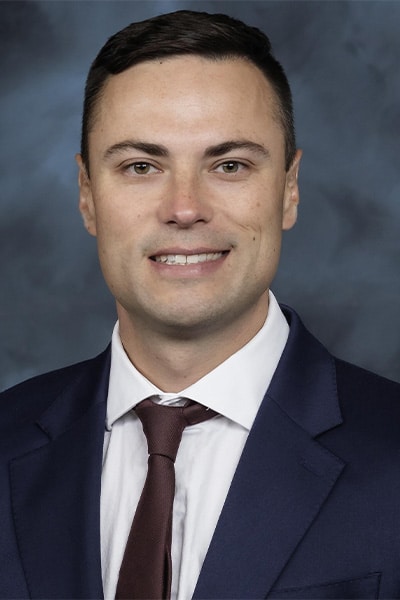
Sagar Kanhere | Mechanical and Aerospace Engineering
Kanhere joins UT after completing his postdoctoral research at the Center for Advanced Engineering Fibers and Films at Clemson University. His research focuses on processing low-cost and high-performance carbon fibers. His lab at UT will focus on investigating the sustainable alternative to carbon fiber precursors and developing high compressive strength carbon fibers. Kanhere received his PhD in chemical engineering from Clemson and his bachelor’s degree from the Institute of Chemical Technology, Mumbai. As the first in his family to attend college and graduate school, Kanhere has always aspired to become a professor—driven by a desire to give back and honor the guidance and support he received from his teachers.
“I am excited to join the team at UT. Given there is already a significant composite material research ecosystem in place, I look forward to collaborating and taking advantage of personal and professional growth opportunities. Go Vols!”
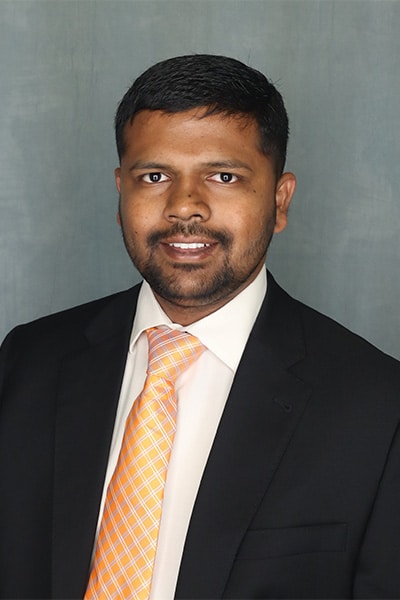
Samuel Olatunji | Industrial and Systems Engineering
Olatunji completed his PhD in Industrial Engineering at Ben-Gurion University of the Negev, Israel, and his postdoctoral research training in Applied Health Sciences, at the University of Illinois. His research program focuses on designing human-robot systems and interfaces that can improve the lives of people in their everyday activities. Olatunji is trained as a human-factors engineer specializing in human-robot interaction for health and wellness. His research addresses interaction design challenges for social and assistive robots supporting individuals in their daily living activities. His expertise as a human-robot interaction researcher helps guide robot-based project developments through theory and methodologically sound approaches and advances fundamental knowledge and practice in human-systems integration.
“The goal is to design for use, such that everyone can use robots in the way they want, when they want, with whom they want, where they want, and how they want, to improve their overall quality of life. I am excited to join ISE at UT and looking forward to collaborations that will make that goal a reality.”
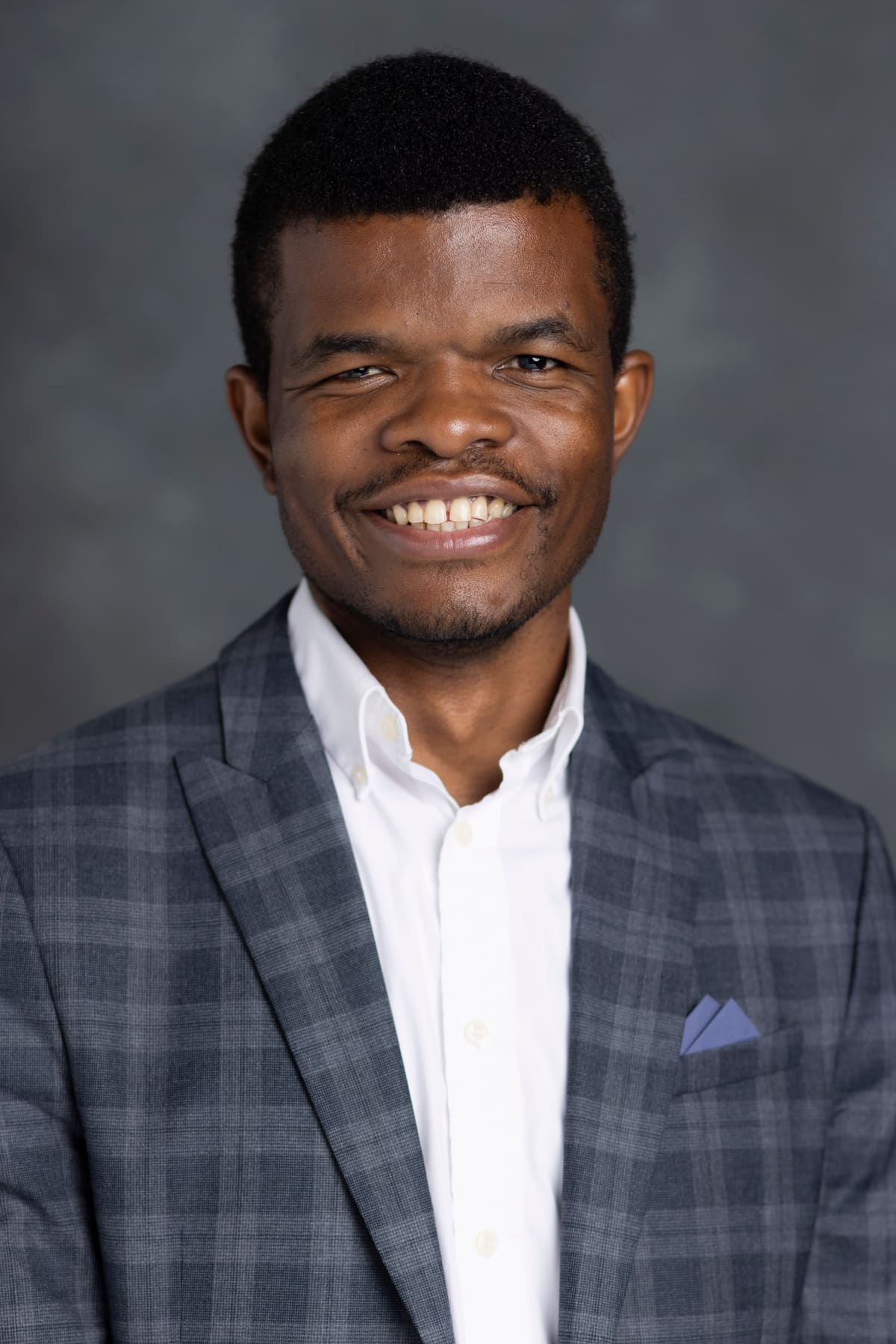
Ilja Popovs | Nuclear Engineering
Popovs joins the Department of Nuclear Engineering after completing postdoctoral fellowships with Northwestern University and ORNL. He received his PhD in chemistry from the University of Houston in 2014.
In his lab at UT, Popovs plans to create effective chelators for lanthanides and actinides. Popovs believes he can harness these important radioisotopes from environments where they currently cannot be used—or are even considered contaminants. He will also focus on synthesizing chelators that can apply abundant but underutilized radioisotopes to medicine. He is particularly interested in radium-223, which is currently used to relieve pain in patients whose advanced cancer has metastasized to their bones.
“Being at the cutting edge of both research and teaching is obviously challenging, so I feel very fortunate to be joining a department that is known for its mentoring and teaching as well as its research. All of the colleagues were outstanding in welcoming me to the department.”

Dacheng Ren | Biomedical Engineering
Dacheng Ren has been selected as the inaugural department head of the new Department of Biomedical Engineering at the University of Tennessee that will launch in August. Ren comes to UT after spending the last 19 years at Syracuse University, where he was most recently the associate dean for research in the College of Engineering and Computer Science, the Stevenson Endowed Professor in the Department of Biomedical and Chemical Engineering, and previously the director of the Syracuse Biomaterials Institute. Ren’s research focuses on microbial control, biomaterials, and safety of medical devices.
“As the inaugural department head, I will prioritize building the department with a shared vision of strategic growth, strong academic programs for student success, advanced research with focused areas of excellence, and a supportive environment for the career development of faculty and staff. There is so much that we can achieve together, and I look forward to it.”
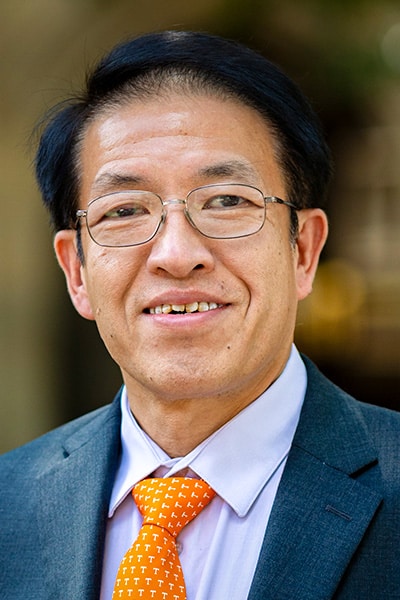
Carolyn Shurer | Chemical and Biomolecular Engineering
Shurer joins UT as an Assistant Professor after completing her postdoctoral training at the University of Virginia and earning her PhD in chemical engineering from Cornell University. Her research employs engineering strategies to uncover how the plasma membrane’s biophysical and biochemical organization regulates fundamental cellular processes such as signaling, polarity, and communication with the extracellular environment. By integrating tools from membrane biophysics, lipidomics, and quantitative imaging, her lab investigates how membrane structure and composition influence cell behavior and shape outcomes in human diseases.
“At UT, I’m looking forward to building a collaborative research program that investigates the membrane as a central hub of cellular function and inspires the next generation of engineers and scientists.”
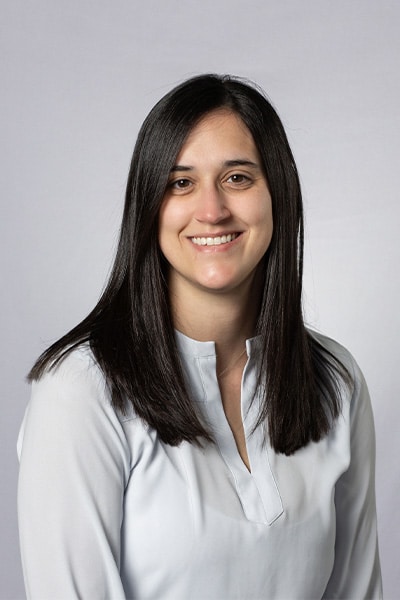
Gabriel Veith | Chemical and Biomolecular Engineering
Veith joints UT as a joint faculty member with the Oak Ridge National Laboratory. Veith’s research centers on directing and controlling interfaces for batteries and catalysts. His research is specifically directed towards next generation battery technologies, like all solid-state energy storage, which has the potential to double the energy density over existing battery technologies.
“I am excited to join the dynamic team that is nucleating within CBE and generating world-leading science and the next generation of scientific leaders needed to change the world.”
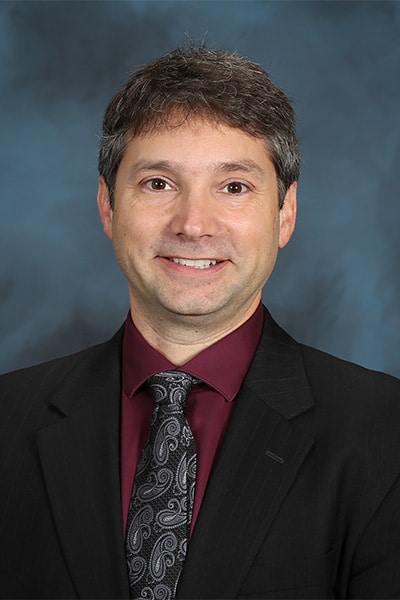
Yang Wang | Mechanical and Aerospace Engineering
Wang joins UT from the University of Colorado Boulder, where he spent four years as a PhD student and three years as a visiting professor. His research focuses on satellite navigation and remote sensing, with particular interest in observing the Earth from space, from the ionosphere to rivers and polar ice. Before coming to the United States, Wang earned his bachelor’s degree from Beihang University in Beijing, China, and his master’s degree from Nanyang Technological University in Singapore, both in electrical engineering.
“Space technologies have always inspired me. I am thrilled to join UT and eager to work with faculty and students to help strengthen and grow the university’s aerospace programs.”
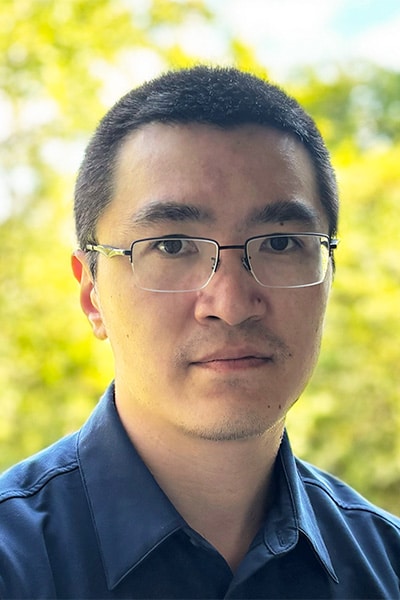
Xiongye Xiao | Electrical Engineering and Computer Science
Xiao earned his PhD in electrical and computer engineering from the University of Southern California (USC) in 2025. Prior to that, he received his bachelor’s degree from the College of Control Science and Engineering at Zhejiang University in 2019.
Xiao’s research focuses on machine learning, neural operators, and complex networks. He is particularly interested in AI for science—applying AI to neuroscience and materials modeling—and science for AI, using insights from physical and biological systems to inform the development of more robust and interpretable AI models. During his PhD, Xiao authored over 20 peer-reviewed papers, including multiple publications in top-tier machine learning venues. He was recognized with the Best Research Assistant Award and the Outstanding Research Assistant Award from USC.
“I’m thrilled to join UT’s EECS department, which is actively growing its strengths in AI and interdisciplinary research. I look forward to contributing to a collaborative environment that bridges foundational AI and real-world scientific discovery.” – Xiao
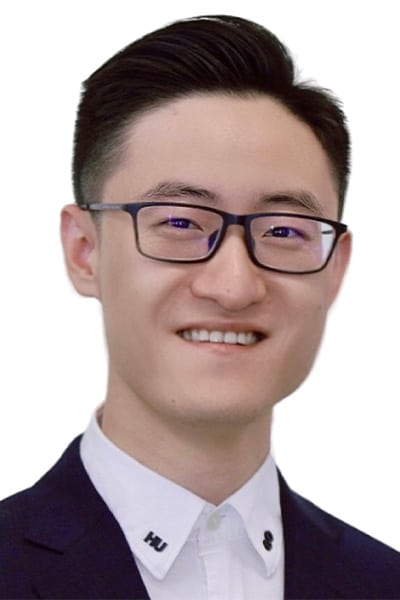
Weinan Xu | Materials Science and Engineering
Xu joins the UT faculty from the University of Akron, where he was an assistant professor in the School of Polymer Science and Polymer Engineering. Xu’s current research focuses on the development of sustainable/functional polymer composites and their advanced manufacturing, with applications in energy, electronics, and biomedicine. Xu obtained his PhD in materials science and engineering from Georgia Institute of Technology and did postdoctoral research at Johns Hopkins University. He has been recognized with several awards, including the DARPA Young Faculty Award, the Polymer Processing Society Early Career Award, and the Polymeric Materials: Science and Engineering (PMSE) Early Investigator Award from the American Chemical Society.

Chulho Yang | Applied Engineering
Prior to joining the university as the inaugural department head of applied engineering in 2025, he served as interim head of the Division of Engineering Technology at Oklahoma State University (OSU), where he gained over 17 years of academic experience.
Yang’s professional work has focused on structural design and optimization, vehicle NVH testing, sensitivity analysis, structural health monitoring, occupant protection, and advanced design methodologies. His research mainly focuses on the following areas: pressure mapping sensor development; mechanical system analysis and design; noise and vibration; experimental sensitivity analysis; structural dynamics/health monitoring; design optimization; biomechanics; and protective device/structure
“I am excited to join TCE and lead an outstanding department while collaborating with incredible colleagues at UT. The future of this new department looks exceptionally promising, and its graduates will be in high demand across Tennessee and the nation. They will enter the workforce well-prepared with the skills and training necessary for success

Di Zhou | Mechanical and Aerospace Engineering
Zhou joins at UT from California Institute of Technology, where he was a postdoctoral research associate at the Graduate Aerospace Laboratories. He earned his PhD in aerospace and mechanical engineering from the University of Notre Dame. Zhou’s research focuses on computational fluid dynamics, aeroacoustics, high-performance computing, and scientific machine learning.
“I am excited to join the Department of Mechanical and Aerospace Engineering at UT. I look forward to advancing research in fluid mechanics and scientific machine learning while contributing to the education and success of our students.”
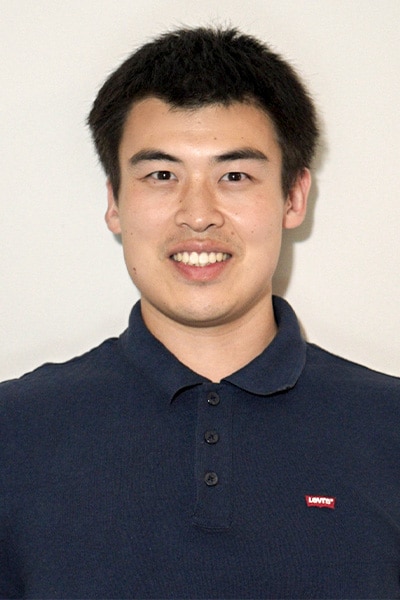
Contact
Rhiannon Potkey ([email protected])

